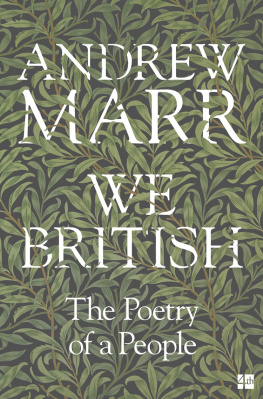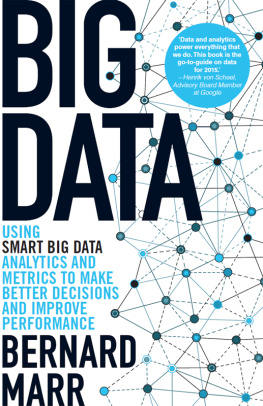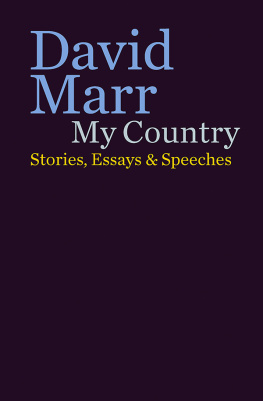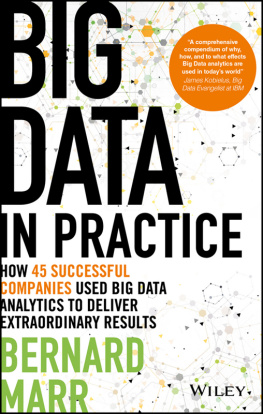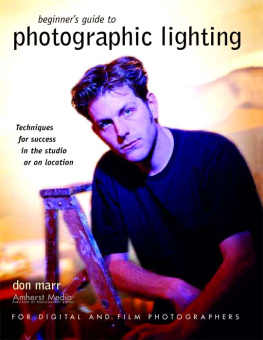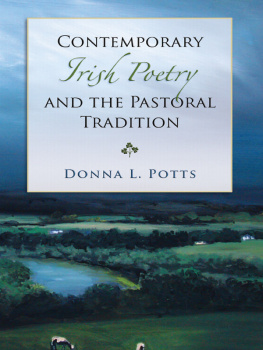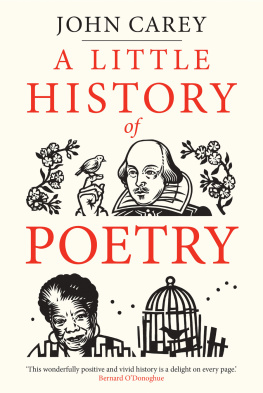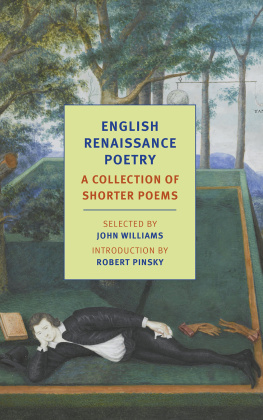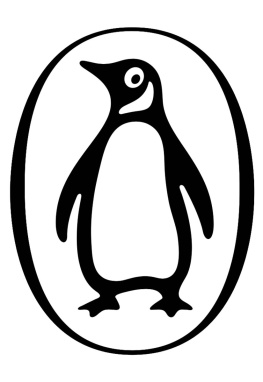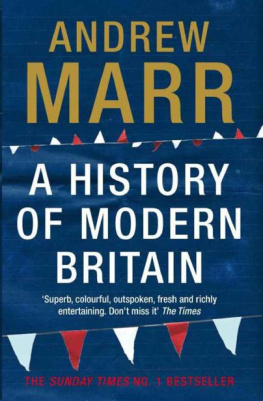4th Estate An imprint of HarperCollins
Publishers 1 London Bridge Street London SE1 9GF www.4thEstate.co.uk First published in Great Britain by 4th Estate 2015 Text Andrew Marr 2015 Cover image Willow Bough wallpaper design, 1887, Morris, William (183496)/Private Collection/Bridgeman Images Andrew Marr asserts his moral right to be identified as the author of this work A catalogue record for this book is available from the British Library All rights reserved under International and Pan-American Copyright Conventions. By payment of the required fees, you have been granted the non-exclusive, non-transferable right to access and read the text of this e-book on screen. No part of this text may be reproduced, transmitted, downloaded, decompiled, reverse engineered, or stored in or introduced into any information storage retrieval system, in any form or by any means, whether electronic or mechanical, now known or hereinafter invented, without the express written permission of HarperCollins e-books. Source ISBN: 9780008130893 Ebook Edition October 2015 ISBN: 9780008130916 Version: 2016-07-18
Contents
For Emily, a poetry reader I would also like to thank Gwyneth Williams, Controller of Radio 4, who believed in this project; and James Cook, who led the takeover of the channel for National Poetry Day, 8 October 2015
Beyond the village, theres some marshy ground. There, on a warm evening, a horny, lonely man is making rhythmic noises and shuffling his feet. Inside his head theres a kind of music, and what hes doing is trying to fit words to it, words that express his feelings for a woman too good for him living in the village.
A few centuries later theres another man, who feels he has let down God and is facing eternal hellfire. Yet hes a kindly man, of gentle disposition, and somehow feels that God cant be as pitiless as the Church elders suggest. So, with a goose quill and a sheaf of rough paper, he is dipping into ink and writing down a kind of private, rather bouncy, prayer. He too is humming. Then there is the woman in a foul dungeon, throbbing with pain from her torture, dictating to a shabby priest her defiant poem against the authorities. There will be many more women rich, in chambers coloured with stained glass, protected against the cold by animal skins; and poor, living in twentieth-century London, struggling with wailing children and an absent man.
And many, many more men, too Irish mystics, Scottish farmers, West Country priests, a Warwickshire actor all doing the same thing, setting the words to rhythm, tightening them together like the ropes on a fast-moving yacht, trying to build a compact, thrumming little engine of meaning out of the sprawling magic of the English language. Palaeo-archaeologists, who study early man, tell us that the rhythm and the music came first. Dances, perhaps led by tribal shamans, would be used to bind the people together and to express defiance of the surrounding dark and danger. To keep the beat, it was natural to hum, sing or shout. And at some point it seemed a good idea to add words. The earliest Greek tragedies, with their choruses, music and masks, give us some notion of where poetry came from.
The first poets that we know were read and discussed on the archipelago of islands we call British would have been the Latin poets of the Roman Empire. Its most unlikely that the Bronze Age tribes technically competent people, farmers and metalworkers, miners and traders didnt have their own poetry. But we know nothing about it. The Romano-British, however, would have had their Virgil and their Martial, and indeed their Greeks as well; there would have been poetry recitals in the villas of Sussex, and dirty, clever ditties murmured along Hadrians Wall. Eventually, with the scouring of invasion and the countersweep of resistance, with defeats and victories, the ethnic make-up of the British changes, and we begin to see a new language emerging from the clash of the Germanic tongues of invaders, and the Celtic speech, by now mingled with Latin, of the resisters. Like a perpetual bubbling broth, new ingredients will be added again and again through the centuries Norse Viking, French, Italian and Spanish, Indian and Arabic.
This linguistic paella will become the worlds most extensive and flexible human tongue, used by generations of British people to express their strongest innermost feelings, their delight in the world, their loves and their terrors. Most human cultures seem to have specialities, for which they are particularly admired. What would Germany be without its music, or Italy without its painters and architects? The British have never had a musical tradition to rival that of Russia or Germany; or the gloriously exuberant architecture of Paris or Rome; or the coherent worldview of classical China. What they have had is the richest and most remarkable tradition of poetry of any major culture. The nest of singing birds remains at the heart of the British achievement more important, Id say, than empire or even the extraordinary British leaps forward in science. What follows is an attempt to use British poetry as the framework for a kind of alternative epic, the story of what it was like to be British, told through poetry, and sometimes through the stories of the poets.
Hundreds of thousands of Britons have left traces of what it was like to be me in particular letters, drawings, works of art of all kinds, text messages, emails and social-network exhibitionism. Yet poetry is special. Its the most intimate and direct communication mankind has so far discovered. When it works and quite often it doesnt it can have an intensity and an interiority unmatched by anything else. When Shakespeare describes the accumulated guilt and despair of the murderer Macbeth, we see and hear a mind working in a way that seizes us still in the twenty-first century. We can read about the catastrophe of the First World War; but to feel what it was like to be there, even now, we dont turn first to the film-makers but to the poets.
Those are rather obvious examples. But unlike texts, emails or television, poetry allows people from distant times to talk directly to us, with nobody else getting in the way: a medieval ploughman, a Tudor drunk or a jilted Georgian woman can look us straight in the eyes. Writing this in 2015, Im acutely conscious that the very word British has become controversial. Many of my fellow Scots would far prefer an epic of the Scots in verse and they can indeed find that. England, happily or otherwise, seems to be beginning to find its own voice again: many contemporary historians now focus unashamedly on the story of England, when perhaps even a decade or two ago they would have automatically reached for Britain. If I restricted what follows to poetry written in English, however, Id be in a quandary.
The Inglis tongue was established across much of southern Scotland by the early medieval period even the patriotic epic about Robert the Bruce is written in a language which owes much more to the SaxonFrench mangling we call English than to Gaelic. Scotlands greatest poets Dunbar, Henryson, Douglas, Fergusson, Burns, Scott and MacDiarmid wrote at least sometimes in English; and when there was a determined attempt to return to the older Scottish versions of English in the twentieth century, the prickly Scots that emerged was still a cousin of English. The same is true of the other Celtic nations: how could a survey of English poetry ignore Swift, Yeats and Dylan Thomas? There is no political agenda in this book, though many of the experiences of the people across the archipelago have been similar. The Vikings arrived on the coasts of all of Britain, and settled in the Orkney and Shetland Islands, Dublin, the Isle of Man and the Gower Peninsula, as well as York and most of eastern England. The rage of the Reformation arrived in full force in Scotland, as well as England; plagues did not discriminate; nor changes in agriculture; nor many of the wars. So a lot of the British experience has been common, and I aim to reflect that.

